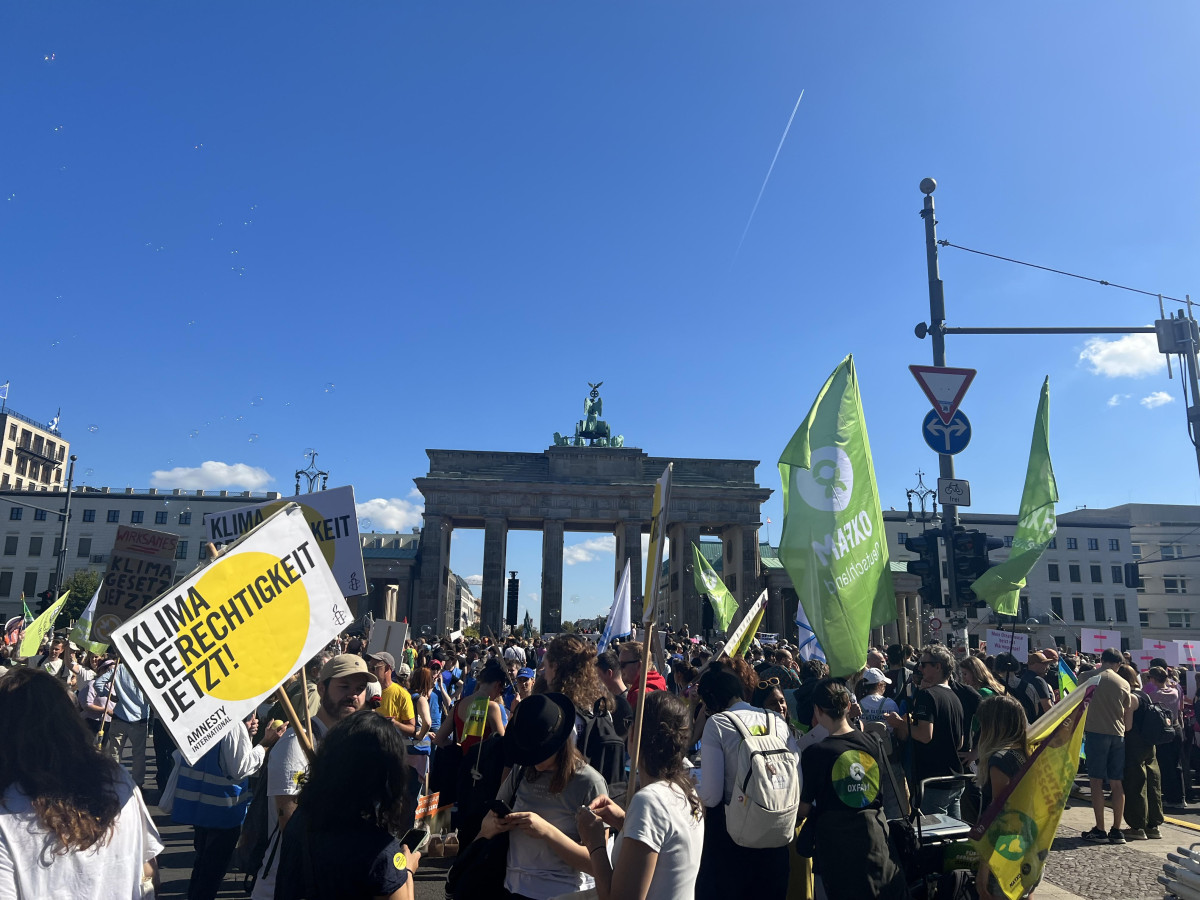German activists decry “weakening” of key climate law during global strike
Clean Energy Wire
Climate activists in Germany have accused the government of watering down a key law to ensure emissions reductions during the global climate strike organised by the Fridays for Future youth movement. During demonstrations that were planned in around 250 locations across the country and were backed by many groups, protesters said that the controversial reform of Germany’s Climate Action Law, which is set to be debated in parliament soon, will make it harder to reach climate neutrality by 2045, the German government's target. "People are out here protesting against the attempts by the government to weaken the Climate Action Law," 47-year-old activist Mathias told Clean Energy Wire during the protest. "People want stronger climate laws, not weaker climate laws."
Germany’s Climate Action Law made the government's climate neutrality target legally binding and introduced stricter greenhouse gas reduction targets on the way. But the coalition of Social Democrats (SPD), Green Party and Free Democrats (FDP) has proposed a reform which is set to effectively weaken ministerial responsibility for excessive emissions in specific economic sectors such as industry, transport, or buildings. The reform still requires parliamentary approval to take effect.
The global Fridays for Future youth movement, which was started by Swedish climate activist Greta Thunberg, celebrated its fifth anniversary last month, but has been battling with dwindling attendee numbers in Germany. Franzie, a 29-year-old activist, said that many people were frustrated "because they see that this method isn't really helping to bring the change they hoped for." 23-year-old Nora blamed declining attendee numbers at the dominance of other issues, such as the Ukraine war. "The numbers are definitely lower, but we are hoping to see lots of people after a very hot summer," she said.
At its peak in 2019, the movement managed to mobilise more than one million people across Germany. A recent survey by More in Common Germany, an initiative that studies social cohesion, shows that support for the climate movement in general has almost halved in the last two years. Media coverage of the climate movement in Germany has been largely focused on the more radical Last Generation Group this year, which has become synonymous with street blockades.
In a survey commissioned by public broadcaster ARD, a majority of Germans said the Fridays for Future Protests have had little or no impact on their personal views on climate action. Fourty percent of respondents said the movement had no impact on their personal attitude towards climate protection, and 35 percent said it had little impact, compared to 23 percent who said it had a strong or very strong impact. However, former chancellor Angela Merkel has credited the movement with pushing the government to act more quickly and resolutely on climate.


